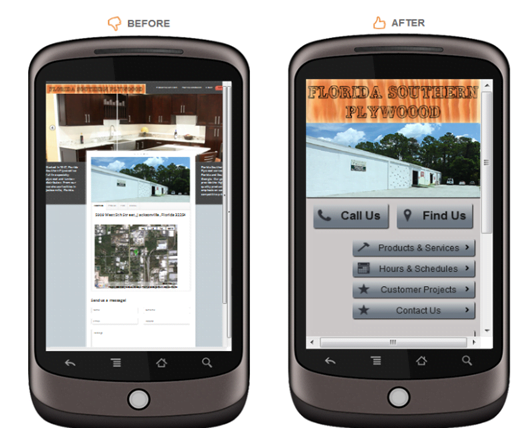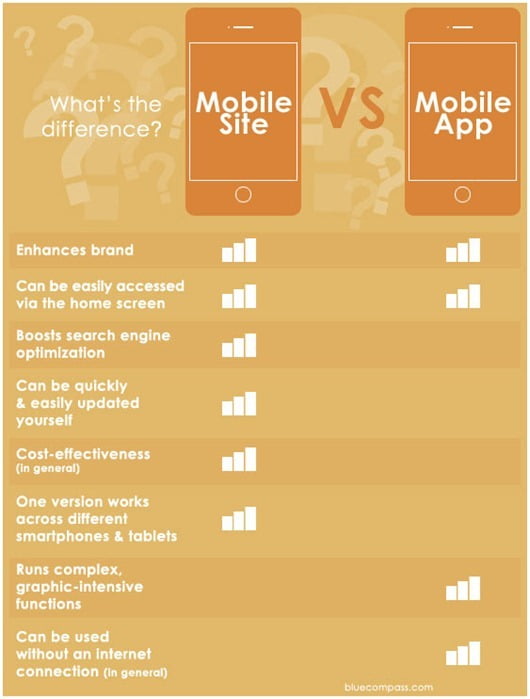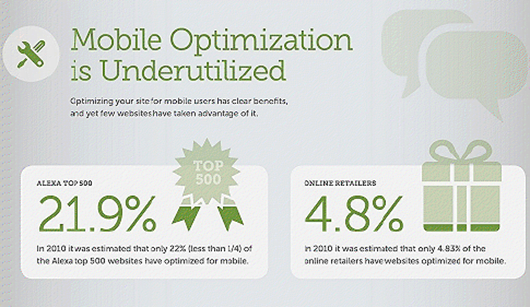10 Reasons Why Wineries (and Other Businesses) NEED a Mobile Website. Part 2
August 29, 2012#6 Mobile sites load faster.
How many times have you gone to a website, only for it to take a little too long to load, so you shouted “Screw this!” and ended up clicking somewhere else? I do it daily.
There is no reason to believe that businesses around the world don’t lose customers due to the load time of their website. Amazon.com are the perfect example, who after a lot of research, found that just one second of extra page load time could cost it $1.6 billion in sales each year!
The issue of load time becomes even more magnified on mobile devices, since the download speeds are slower than desktop computers. Mobile websites are built to load much quicker than regular websites, as the content is optimized specifically for mobile. Mobile websites get people to exactly to what they are looking for, without all of the other “fluff” which is contained in a full website. However, there will still always be a link at the bottom of the page, should mobile users want all the information from the full site.

#7 Mobile websites are cost-effective.
The first concern for any business, and particularly wineries, who are looking to build a new website is the cost i.e. is it worth throwing $10,000 at a new website design, if you’re only a 1,000 case winery? Luckily, mobile websites are available for a fraction of the cost of a regular website, mainly due to them not having as many features as a full website and a more streamlined design. On the whole, mobile websites should be kept as clean and simple as possible. Cluttering them up with multiple videos, slideshows, large volumes of pages and high resolution photos will only slow them down. Then you’re back at square one!
It’s worth mentioning that there are quite a few free/cheap mobile website templates online, but some of the results can be less than desirable. As an example of this, a winery actually approached me recently, asking me to evaluate their web presence. I was obviously happy to do so (free of charge) and was quite surprised to hear that they already had a mobile website in place! “Great!” I thought. Then I went to it….
The problem was that they had, in an attempt to save some cash, opted to use a cheap website builder, with an extremely generic theme. The end result was…how do I put this politely….terrible! I’m not being a website snob. I wish I could show it you, and I promise, no matter how much experience you may or may not have with websites, you would think the same thing! Sometimes it’s best to get the professionals involved!

#8. You have options!
There’s been a lot of talk regarding the potential advantages/disadvantages of mobile websites vs. responsive websites.
For those of you who haven’t heard of “responsive” websites, Barack Obama has a great example of a responsive website design. Click over to BarackObama.com (no matter what your political affiliation!) and resize your Internet browser window. Notice how the content changes to fit the window? That’s a responsive website. The reason for this is so that the content will automatically resize to the screen size of the device you’re viewing it on i.e. smartphone, desktop or tablet.
Now go to MittRomney.com and see how it doesn’t change to fit the window? That’s a nonresponsive website. Mitt instead opted for a mobile website design (viewable only on a mobile device.) SmashingMagazine.com recently featured an excellent article on how each candidate’s website weighs in.
Responsive websites aren’t something I want to get into too deeply here, but personally, for businesses that are primarily trying to get people into their “bricks and mortar” location, a mobile website is the way to go. I deem “responsive websites” more relevant for businesses trying to showcase their online content, and using the example of Barack Obama’s responsive website (in the SmashingMagazine.com article), the results sometimes aren’t always that good!

#9 Mobile websites generate LOCAL traffic.
Take a look at the research below: “80% of searchers research online before purchasing in a 10-20 mile radius.” That’s a pretty staggering %!
Because websites can obviously reach a global market, I think people often ignore the local implications of website search. Mobile websites have the additional benefit over full websites in that they can quite easily (and affordably) incorporate “local features” into their design i.e. “click to call” and “click to map” integratiion. Click here for an example of a website with these features, which just so happens to be a site I designed! :)
#10 Mobile websites offer a quick installation and no download required.
There is no-doubt a lot of confusion over the word “mobile.” Because mobile apps have become so prevalent, a great deal of people think that mobile website involves downloading an app to their phone. It doesn’t, and at least so that you have my two cents on it, there are very few wineries in the world that would see benefit (i.e. ROI) from an app and they’re hugely expensive to do well
The added bonus with mobile websites is that they’re EXTREMLY easy to integrate into your current website, so visitors are automatically redirected there when viewing it on a mobile device. All it takes is a small piece of code inserted into your full website, something which should take (an experienced professional) around 3-4 minutes.













